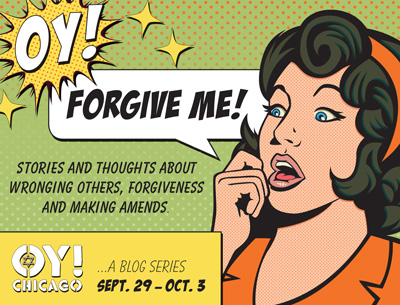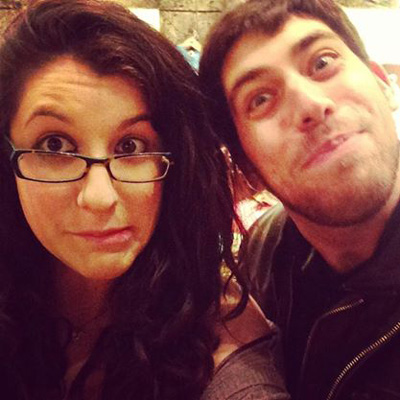The Fault in My Friendships
Permanent link
As I grow a little bit older, a little bit wiser and unfortunately a little bit wider, I‘ve learned something about my friendships. I haven’t always done great with them. And more often than not, it’s my fault.
I’m one for reflection on this Highest of High Holidays, as I’m sure are most of you attractive Oy! readers, but far too often I blame my introversion as a scapegoat. This upcoming Yom Kippur, I’m realizing that I need to forgive my younger self for the friendships that have gone and focus on the friendships that have grown.
First and foremost, some friendships are meant to dissipate over time and that is okay. As we grow older, our schedules and priorities change. It took me a long time to see that the friendships I am keen on keeping, however, take work, and I need to make a conservative effort to maintain them.
A lot of my epiphany stems from my friendship with Jessie, who asked not to be mentioned by name. Long story short, we were friends from high school and throughout college we didn’t speak to each for three years due to an incident involving a large amount of immaturity and bad communication, almost entirely stemming from me. It’s one of the few regrets in my life. Another being that I tried the cottage cheese in my fridge with the expiration date smudged out.
The actual incident in question is so muddled these days that I can barely even understand what incited the three-year break, I just remember the feelings I had leading up to it and right after. In all fairness, I remember that a lot was due to me being a bit of a pushover (I fear standing near railings) and letting my friends dictate plans and sometimes me, even when I was truly uncomfortable. This all came to a head when, instead of dealing with my feelings or explaining how I felt, I basically straight up abandoned the friendship.
Man, I was a jerk.
Over the years, Jessie kept reaching out to me and I finally came around to my three-years-more-mature senses. This friendship today is now one of my strongest, important and special. We even humorously call those years “The Hiatus,” noting how our friendship is a ship that can never sink – just occasionally blow up. This experience has helped me to understand that it’s important to never burn bridges, but instead, if you have to, just put up an easily removable “Do Not Enter” sign.

That’s just one instance of a friendship in fault, though the best faulted friendship (what great irony) is one in which neither of us really talk to each other for a while, maybe a month or possibly years, but never feel for a seocond that the friendship is over. I’m sure many of you have these as well. I forgive these friends for not trying to get in touch with me because it is usually as much my fault as it is theirs. We might actually get together and catch up if one of us would stop being a fool and pick up the phone – or to rephrase for my generation – we might actually get together and catch up if one of us would stop being a fool and pick up the Facebook.
Some faulted friendships have always been there but have just needed some time to evolve. Take my friendships with my Cousin Ted and Cousin Toni, for instance, who both also asked not to be mentioned by name. I’d always been friendly with Toni, but it wasn’t until I had worked with her for a year that we truly got to know each other. No regrets there, just wanted to mention I’m happy about that … but with my Cousin Ted, it’s a different story, because he’s a different person.
Ted and I basically grew up together, but from high school through college, we weren’t as close as we are now. I wish I had known as kids how much our future selves both liked craft beer. We became great friends once I moved to the city and even though he doesn’t live in Chicago anymore, we talk just as much if not more and revel in the times we get to spend together (drinking craft beer of course). Our friendship even got to the point where I stood up at his wedding. This made me appreciate Cousin Toni that much more because at her wedding, she at least provided me a chair.
A lot of what I have learned about forgiving myself for my imperfect way of handling friendships comes from understanding what it means to be an introvert. These days, I’m very busy, and I treasure my free time for myself; I’m absolutely horrendous at reaching out to people to make plans. Having said that, I recognize there may even be a few unfairly neglected friends nodding their heads while reading this. By the way, thank you friends I’ve unfairly neglected for reading this! But to them I say that I do apologize. It’s not you – it’s everyone. I hope you can forgive me as I have forgiven myself for a being a fool and not picking up the Facebook.
To read more posts in the “Oy! Forgive Me!” blog series, click here.




